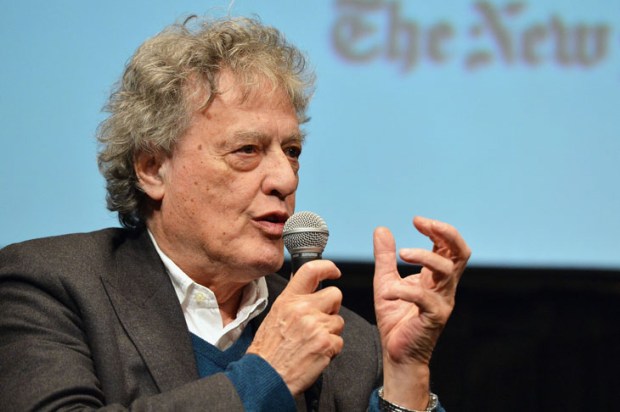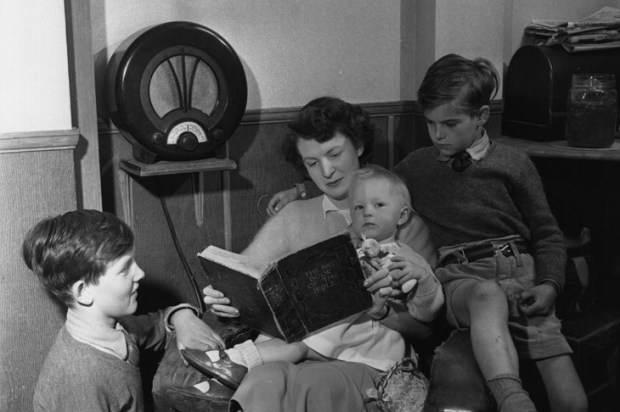By chance on Saturday morning, I tuned into Radio 4 and heard Professor Clare Brant talking on Saturday Live about Dear Diary, a new exhibition at Somerset House in London that celebrates the art of writing a daily journal. It caught my ear because diaries are such a crucial tool for the biographer yet whenever I’ve attempted to write my own it’s always turned out dreadfully narcissistic and infinitely boring. What, asked Richard Coles, makes diaries so fascinating? It’s all in the detail, said Brant. The way reading a diary can take us into another person’s world, not the outward gloss and grandeur but right inside the way the diarist is thinking and responding to what’s happening around them. What makes them so compelling is not so much the presence of the diarist at big events, but those moments of unguarded comment or reflection. At the exhibition you can read the thoughts of an 18th-century tin miner in Cornwall who likes to eat dolphin for breakfast. Or follow an aid worker in Yemen into the refugee camp, like a fly on the wall, walking with them through their day.
‘It’s that curious conjunction,’ says Brant, ‘between the everyday minutiae and the big stuff’, between wiping your nose and witnessing events that punctuate the historical record. But how will diary-writing survive the digital age of Instagram and Twitter? There’s so much stuff out there now, how will future historians know where to look for records that are entertaining and meaningful? Brant is optimistic. Paper diaries are still being written, if anything more than ever (and you’re invited to donate your own to the Great Diary Project).
Brant’s favourite in the exhibition comes from a young girl, writing in 1968, aged just seven. ‘She’s listening to the radio,’ said Brant, ‘and she’s hearing about the student riots in Paris and about Mr Wilson’s government with the Prices and Incomes Bill. She writes it all down, along with stuff about school, and nature walks, and about her exams, going swimming, and her granny coming for tea. It’s an absolute fascinating interaction of the global and the local.’ Who did she grow up to be? Coles asked. ‘An investigative journalist,’ said Brant.
Hugh Sykes, who usually reports from Iraq, Turkey, Pakistan, has been drawn back to the UK and sent out by the World at One to seek out the undercurrents at play in the election here. His short studies of three key areas, Teesside, south Yorkshire and South Wales, all keenly affected by recession and deindustrialisation, are now available as a podcast and reflect a surprising degree of optimism and positive energy along with the more obvious despondency and deprivation. Like Pittsburgh in the US, Middlesbrough has been saved by civic pride, by localism, by the kind of enterprise that’s driven by hard work and determination. Sykes meets a couple who have set up a gastropub using their own money, not a penny of funding from the bank or EU.
It’s not so upbeat in south Yorkshire, where Sykes goes down a mine with a former miner he first interviewed 34 years ago. The mine is now a museum, the community life it created long gone. ‘We’ve become a nation of individuals instead of a team,’ Sykes is told. Sixty-seven thousand people lost their jobs when the mines went, and nothing was planned to replace that lost employment.
Out and about in Merthyr, Sykes observes that you can buy two litres of milk for £1 at the local pound shop. Fifty-six per cent of the electorate voted Leave. But it was not about immigration, he is assured. There are large Polish and Portuguese communities just as there always have been in this Welsh mining town, which in the 19th century welcomed vast numbers of Irish immigrants, exiles from the potato famine. Sykes wonders what connection there is between the effects of austerity on such communities and recent voting behaviour. He talks to a teacher at a Quaker school and is told that when you reduce debate to a few simplistic phrases such as ‘strong and stable’, the democratic process is damaged. ‘Those who encourage you to think it is that simple can’t be being honest.’
Anyone who has visited New York, that most urban of cities, the ultimate metropolis, will have observed those odd wooden barrels with conical roofs up there amid the skyscrapers. They punctuate the skyscape, interrupting the walls of steel and glass, strangely Heath Robinson-like amid the sleek chic. In Between the Ears on Radio 3, Judith Kampfner celebrated the water towers of New York and told us why these relics of the 19th century are still so much part of the city.
She watches a new tower being built in a day (to ensure no interruption to the water supply) and explains that they were the invention of a cooper who solved the problem of getting tap water to apartments built up into the sky by constructing wooden barrels on the roof. Anything above six storeys needs a water tower. ‘Perched up there all alone, the tower is like a great overlooked aspect of humanity within the city.’
Got something to add? Join the discussion and comment below.
Get 10 issues for just $10
Subscribe to The Spectator Australia today for the next 10 magazine issues, plus full online access, for just $10.
You might disagree with half of it, but you’ll enjoy reading all of it. Try your first month for free, then just $2 a week for the remainder of your first year.













